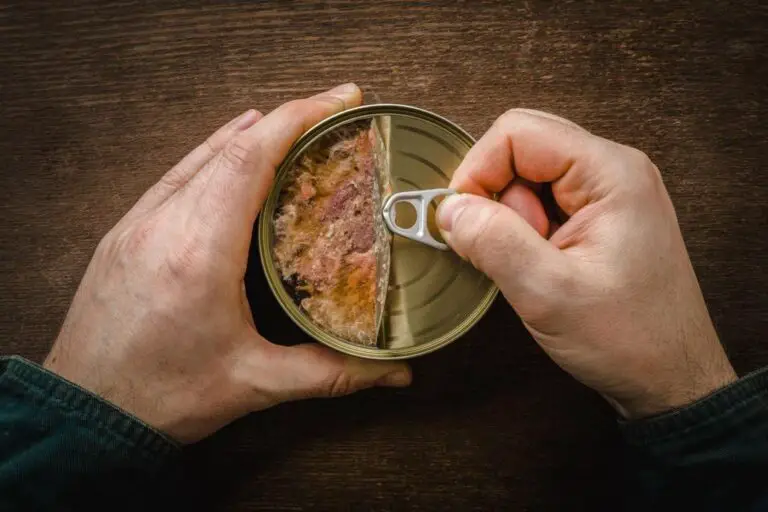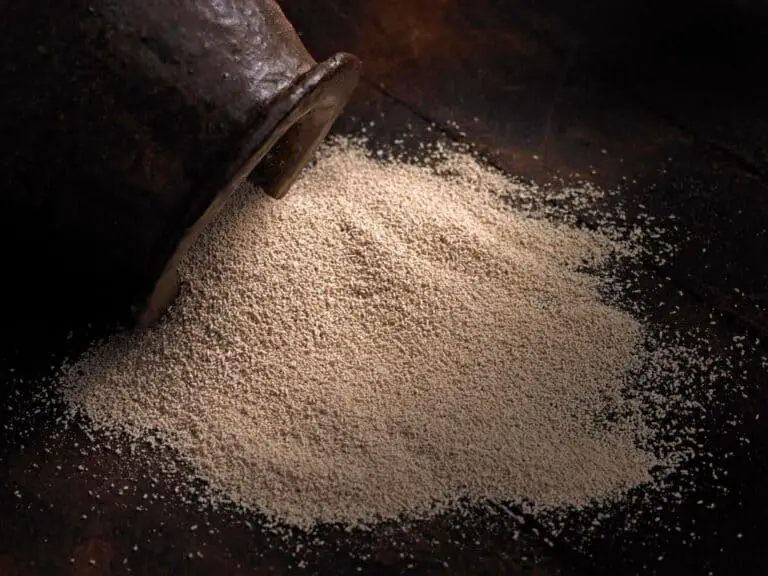Can You Get Sick From Eating Expired Hummus?

Are you guilty of hesitantly eyeing that lingering tub of hummus in your fridge, unsure if it’s still good to eat? Ever wondered what really happens when your hummus hits its expiration date?
We’ve all been there. The mystery of expired hummus is a common concern among food enthusiasts, health-conscious individuals, and college students alike.
But fear not! In this article, we dive into the world of expired hummus to provide you with 7 surprising facts that will not only educate but also challenge what you thought you knew about this beloved dip.
The Definition of Hummus Expiry

When it comes to hummus, the concept of expiry can sometimes be a bit murky for consumers. Understanding what constitutes “expired” hummus is crucial to making informed decisions about its consumption. In general, an expiration date on store-bought hummus indicates when the product is no longer at its peak quality or freshness. However, it’s essential to note that this doesn’t automatically mean the hummus becomes unsafe to eat the day after that date has passed.
Hummus packaging often includes both expiration dates and best-by dates. While the expiration date points to the last day recommended for consuming the product for optimal taste and quality, the best-by date suggests a period during which the item will be in its freshest state. Differentiating between these dates can help individuals assess whether their hummus is still suitable for consumption based on factors beyond just time.
To determine if hummus is safe to eat after its indicated expiration or best-by date, relying on sensory cues becomes crucial. Visual inspection for signs of mold growth or discoloration, smelling for any off odors indicating spoilage, and tasting a small amount to ensure no unusual flavors are present can all aid in assessing whether your hummus has crossed the line from delicious dip to potentially risky food.
Can You Get Sick From Eating Expired Hummus?
Yes, if you eat expired hummus that is spoiled, you can get food poisoning. If the hummus does not show signs of spoilage, it should be safe to consume until the spoilage is evident. For homemade hummus, it is best to consume it within 5–7 days.
As already mentioned previously, hummus usually has a best-by date for the shelf-stable kind and a use-by date for the refrigerated one instead of an “expiration date.”.
The best-by date and the use-by date are only dates upon which the optimum quality of the product is guaranteed. If the hummus is stored properly, it may last longer than its expiration date.
Food spoilage will cause changes in the sensory characteristics of the food, such as texture, smell, taste, or appearance. Spoiled foods may not have pathogens or toxins present and still be safe to eat, but the changes in those characteristics will make them unacceptable for consumption.
What Are the Factors That Influence Hummus Spoilage?
There are several factors that influence hummus spoilage. The first is the quality of the ingredients used. The quality of the ingredients will directly affect the shelf life of the hummus, the better the quality, the longer the shelf life.
Throughout the process of preparing hummus, there is a risk of bacterial cross-contamination arising from ingredients, utensils, and the surrounding environment, making it vulnerable to such contamination.
The homemade hummus is not added with preservatives and does not have a heat treatment in its preparation.
These conditions limit the shelf life of hummus and it has to be stored at refrigerated temperatures.
Another factor that can greatly affect the shelf life of hummus is the conditions of storage. If you keep the hummus in an airtight container, it can prolong its shelf life.
Additionally, preservatives can also affect the shelf life of hummus and prolong it.
What Are the Risks of Consuming Expired Hummus?
Typically, determining the safety of hummus is a straightforward process since expired hummus tends to exhibit noticeable changes in both smell and taste.
Nevertheless, consuming expired hummus can result in food poisoning, which may manifest as symptoms such as diarrhea, vomiting, and abdominal pain.
Foodborne Illnesses That Are Associated With Expired Hummus
Although rare, hummus can lead to a Listeriosis infection due to its contamination with Listeria monocytogenes. Symptoms can include fever, muscle aches, nausea or diarrhea, loss of balance, stiff neck, and convulsions.
Another pathogen that can be the cause of a foodborne illness associated with the consumption of hummus is Salmonella enterica. This bacteria can lead to Salmonellosis and its symptoms include diarrhea, fever, abdominal cramps, and vomiting.
How to Properly Store Hummus?
To properly store hummus, first you have to know the type of hummus that you have; refrigerated, unrefrigerated or homemade.
Unrefrigerated hummus
Unrefrigerated hummus is heat treated with UHT (Ultra High Temperature) treatment that reduces the microbiological load to commercial sterility and enables storage at ambient temperature.
This type of hummus must be kept somewhere dry, cool, and dark, away from sources of heat while it is unopened, like in the pantry or your kitchen cabinet.
Once opened, it must be kept in the fridge in an air-tight container.
Refrigerated hummus
Refrigerated hummus typically undergoes heat treatment through pasteurization, which reduces the presence of microorganisms.
However, it is essential to note that some bacteria may still survive this process, necessitating refrigerated storage to control their growth rate.
This type of hummus should always be refrigerated, even if it is unopened.
Refrain from dipping food, dirty spoons, or your fingers into the hummus, this will accelerate spoilage.
Homemade hummus
Homemade hummus should always be refrigerated to prevent spoilage. Due to its lack of preservatives, it will spoil faster than store-bought hummus.
Signs of Spoiled Hummus
Some signs of spoiled hummus are:
- Appearance: The presence of discolored patches or spots is a sign of mold or bacterial growth, due to its high water content.
- Smell: A bad-smelling hummus won’t go unnoticed. If it smells sour, moldy, or just strange, it is done for. or with a strong ammonia-like smell, you should discard it immediately.
- When there is a high population of microorganisms, they begin to produce peptides instead of sugars, which leads to the accumulation of free amino acids, ammonia, and amines.
- Taste: A sour or rancid taste will indicate that the hummus has gone bad. Legumes, such as chickpeas, contain an enzyme called lipoxygenase. This enzyme can produce off-flavors when the hummus is exposed to oxygen, and give it a rancid taste due to the breakdown of the fatty acids.
- Texture: If you notice slime formation on top of the hummus, it is a clear sign of spoilage.
Lactic acid bacteria make up the majority of the hummus microbial load that causes its spoilage. Lactic acid bacteria ferment the sugars of the food producing lactic acid, slime, and CO2.
Conclusion: Navigating the World of Expired Hummus
As we wrap up our exploration of consuming expired hummus, it becomes evident that understanding food safety guidelines is paramount. Whether indulging in store-bought or homemade varieties past their prime, official recommendations provide valuable insights. Variations in ingredients and preparation methods play a crucial role in determining the safety of aged or homemade versus commercially-produced or contaminated products.
In closing, remember that following food safety guidelines is not just a recommendation but a necessity. Following these recommendations ensures your health and wellbeing, even in the face of temptation from slightly dated or altered packages of everyone’s favorite humble spread.
So next time you encounter expired hummus in your fridge, consider our discussed facts, stay informed, and make the best choice for your palate and stomach alike. Stay safe, stay knowledgeable, and enjoy your hummus adventures responsibly!






